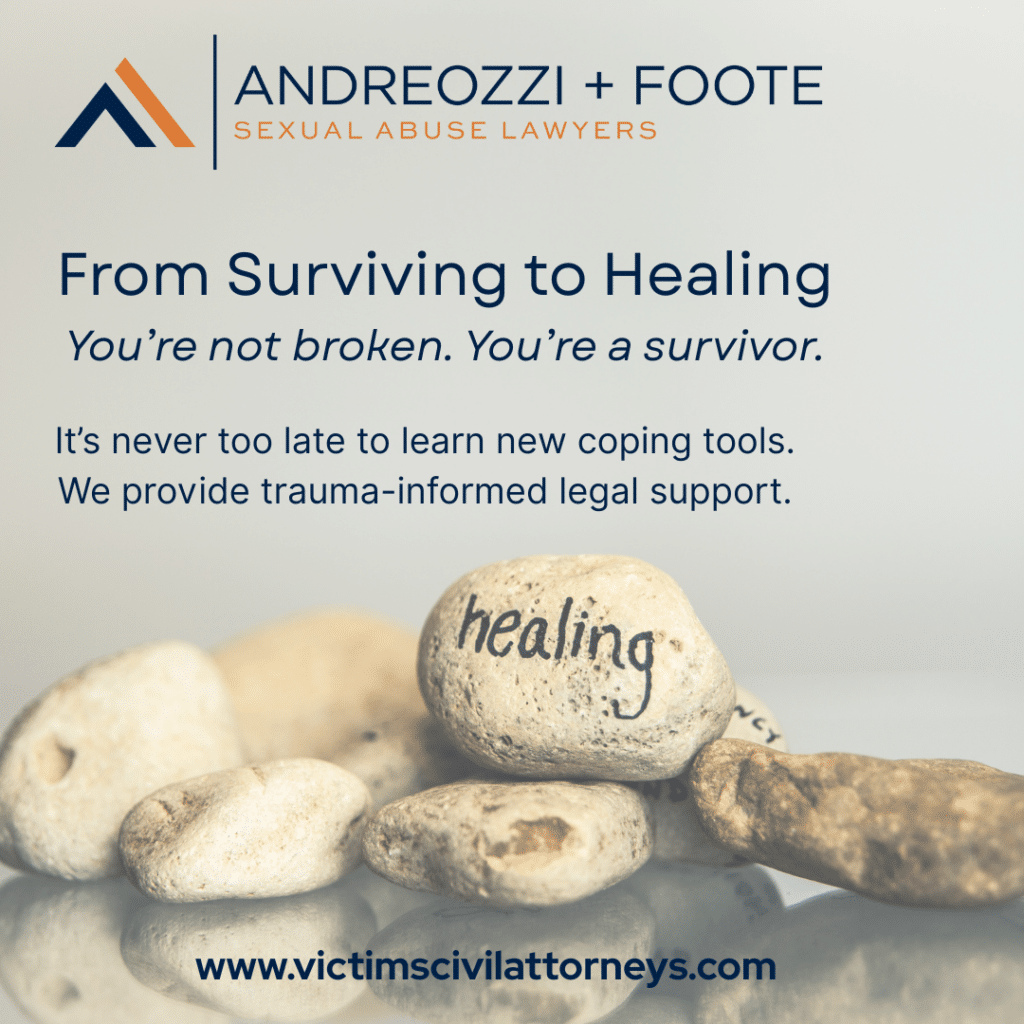When we talk about trauma, especially sexual abuse and assault, we must also talk about survival and coping. For so many of us who have lived through the unimaginable, survival came at a cost—but it also kept us alive.
The reality is that many survivors develop maladaptive coping mechanisms not because we are weak, but because we are strong. We adapted to pain in the only ways we knew how. And while those tools may no longer serve us in our healing, we must honor the fact that they did serve us once.
But here’s the hopeful truth: it’s never too late to learn new, healthy ways to cope. Healing is not linear, and no matter how long ago the trauma occurred, we always have the power to take back control of our lives, our choices, and our coping.
The Truth About Maladaptive Coping
Let’s start with honesty. Many survivors turn to maladaptive coping mechanisms in the aftermath of trauma. These behaviors—substance use, self-harm, disordered eating, dissociation, risky sexual behavior, or avoidance—are often misunderstood. But these are not signs of weakness or failure. They are signals. They are protective measures our brains and bodies use to help us endure what we were never meant to endure.
According to the Substance Abuse and Mental Health Services Administration (SAMHSA):
- Survivors of sexual abuse are 2 to 4 times more likely to develop substance use disorders.
- Roughly 33% of women in treatment for substance use disorders report a history of sexual abuse or assault.
- In a national study, 75% of women and 50% of men in substance abuse treatment reported trauma histories.
These numbers are not just statistics—they are stories. They’re the silent battles survivors fight long after the abuse ends.
Why Maladaptive Coping Works—Until It Doesn’t
We often shame ourselves for these responses, but I want to reframe that. We must stop pathologizing survival. If you coped in any way that kept you alive, functioning, or made the pain a little less sharp—that’s survival. You were resourceful. You did the best you could with what you had.
The problem is that these coping mechanisms aren’t built for long-term use. They numb. They distract. But they don’t heal. And often, they come with their own consequences—addiction, health complications, broken relationships, legal issues, and a continued sense of shame and disconnection.
The Shift to Healing: Adaptive Coping Mechanisms
Healing begins when we learn to replace—not erase—those old tools. We don’t throw away what got us here; we thank it. Then we pick up new tools that support our well-being, growth, and recovery. Here are just a few:
1. Therapy with Trauma-Informed Professionals
Seek out clinicians who specialize in trauma. Ask if they use evidence-based models like:
- EMDR (Eye Movement Desensitization and Reprocessing)
- Cognitive Processing Therapy (CPT)
- Somatic Experiencing
- Internal Family Systems (IFS)
These approaches help survivors gently reprocess trauma without re-traumatizing, and offer lasting healing.
2. Mind-Body Connection
Trauma lives in the body, not just the mind. Practices like:
- Yoga
- Meditation
- Deep breathing
- Progressive muscle relaxation
These tools help us reconnect to our bodies and regulate our nervous systems.
3. Creative Expression
Art, music, poetry, and journaling can all be powerful outlets for pain. They allow survivors to tell their story without words—and sometimes that’s the most healing form of release.
4. Peer Support and Survivor Communities
There is nothing more validating than hearing, “Me too.” Support groups, online forums, and survivor networks remind us that we are not alone—and that our healing matters.
5. Boundaries and Self-Compassion
Learning to say no, to put ourselves first, and to treat ourselves with kindness is not selfish—it’s sacred. Self-compassion is a radical act for survivors who were never given the care they deserved.
It’s Never Too Late
No matter where you are in your healing journey, whether you’re decades out from your trauma or just beginning to acknowledge it, it is never too late to learn healthier ways to cope. Healing is a choice we make every day—not because we have to, but because we’re finally ready to stop surviving and start living.
If no one has told you this today, let me: You are not broken. You are not damaged. Nor are you your trauma. You are a survivor—and you deserve a life full of peace, safety, and joy.
How Civil Lawsuits Can Support Healing
Pursuing justice through a civil lawsuit can be an empowering step in the healing process. At Andreozzi + Foote, we offer trauma-informed, survivor-centered legal support. We don’t just represent your case—we hold your story with the care and respect it deserves. If you or someone you love is navigating the aftermath of abuse, our team can help you understand your rights and pursue justice on your terms.
A civi lawsuit offers answers to questions you have around your story. It offers the possibility of policy reform aiding in education and other ways to prevent future abuse. And-it provides compensation to help provide you with the therapies and support you need to heal.
You are allowed to grieve the old coping skills while embracing the new ones. You are allowed to fall down and get back up. Healing isn’t perfect—but it is possible.
If you’re ready to explore your legal options as part of your healing journey, contact our Philadelphia sexual abuse attorneys today. You are not alone—and we are here to help you take the next step.



